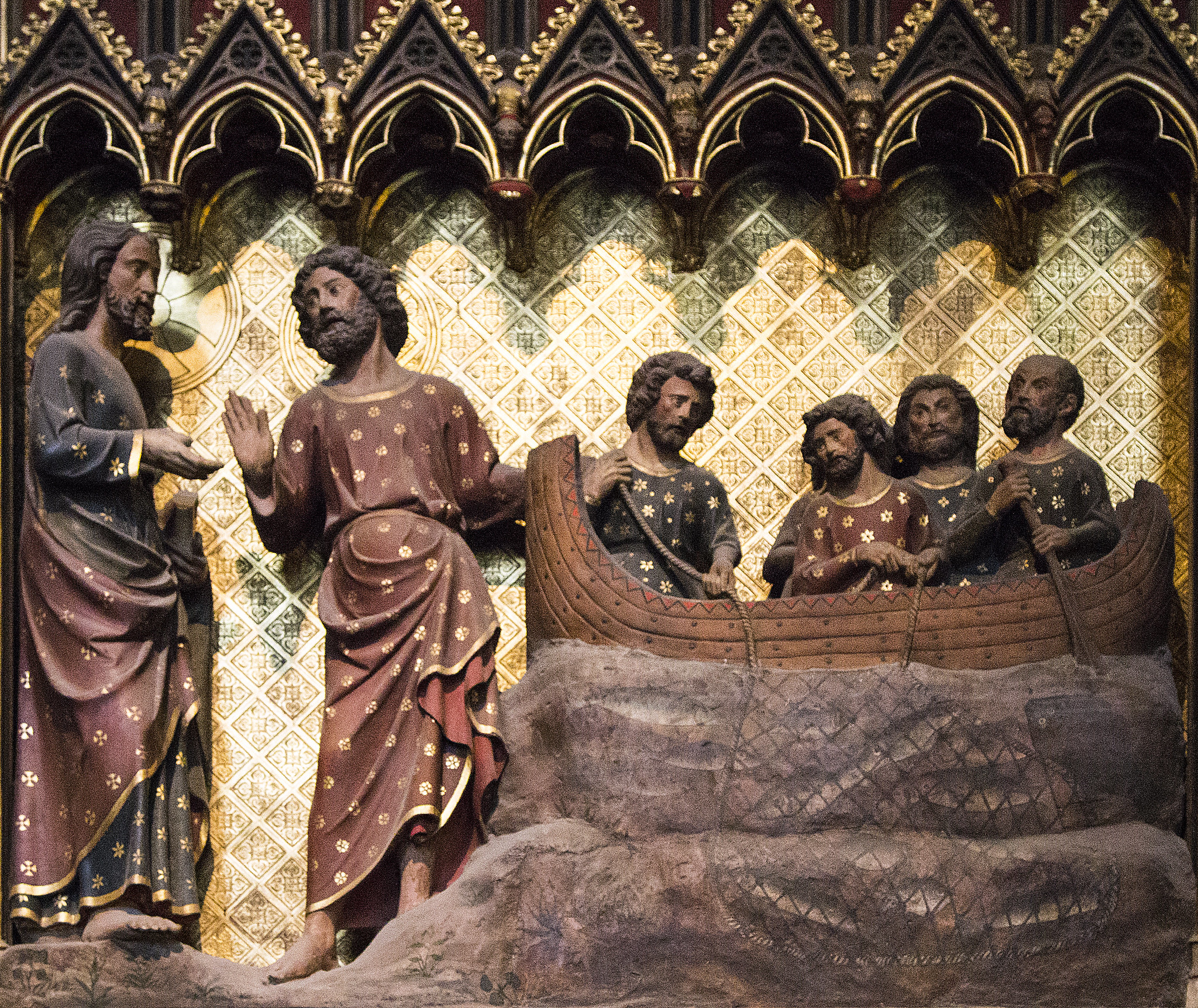I am inspired by Fritz’s terrific contribution last week to share a reflection of my own on the readings for Easter Friday. This reflection began with just one line, a line I normally ignore, that would not leave me this year: “We also will come with you.”
I have been thinking a lot, this Lent and this Easter, of those who are beloved by God but feel alienated from “the church” in its structural manifestations. It’s a long and still incomplete list. Some of my ecumenical dialogue partners find themselves asking when they read “the church” in Catholic theology, “does this mean me?” As a Catholic lay person, I know that the church includes me, but nonetheless in many contexts when I encounter “the church” it refers to the College of Bishops, or just the Vatican Curia. I have been reading the desperate pain-filled stories of those who have felt marginalized from the church’s active ministry, by their age, race, gender, sexual orientation, infertility, grief, mental or physical illness, history of abuse, unrecognized pain. It is for those who still feel they are waiting for the dawn that I wrote this piece on Peter and the birth of the church. Those of you who care about such things will notice that it’s very Johannine.

The readings for Easter Friday may be found here.
“What is the Church?”
Simon Peter said to the other disciples, “I am going fishing.”
Simon Peter, the passionate. “Lord, not my feet only but also my hands and my head!”
Simon Peter, the spokesman. “Lord, to whom can we go? You have the words of eternal life.”
Simon Peter, the failure. “Lord, why can I not follow you now? I will lay down my life for you.”
I have heard many commentaries on this passage that point out that Peter, in his despair, went back to his previous way of life. That is one way of reading the passage, but I expect that for Peter, there was no way back, even in his imagination.
In these moments, when the resurrection has come to pass but is not yet visible to us, what else can we do? Peter, in his failure, returned to the place where he first fell in love, where he first heard the call.
Even before the resurrection comes to be revealed, there is a vast difference between life before and after Jesus: the disciples were together. They were together! Because of this, Peter speaks to his friends, the ones who have heard his promise and his failure! “I am going fishing.”
And his friends, the only ones in the world who can understand his despair, respond, “’We also will come with you.’ So they went out and got into the boat” (John 21:3). This boat, the new ark, the church, is where the resurrection will be revealed, not only the first time but once again and every time God’s people lose heart. But what is the church?
The first fruit of the resurrection, coming even before faith, is the church: the love of these friends in the boat. In the face of failure, against the victory of death, this love answers, “We will come with you.” Jesus has called them friends, and friends they remain, in despair as in triumph.
Simon Peter, who was the first to recognize that the Lord alone has the words of eternal life, returns with his friends to the place where he first heard the call, “Follow me.” They followed Jesus on the road to the cross; now Jesus follows them to the sea. Jesus’ love called them together; now that they are together, he calls them back to hope.
When Peter preaches the Resurrection, he knows exactly what he is talking about. “He is the stone rejected by you, the builders, which has become the cornerstone.” From builders, we too must be willing to become stones, held together in the church. For faith begins, at least in some stories, not with a clear vision but with a stubborn adherence to one another as we attempt to follow someone who has passed beyond the horizon we can see.
What is the church? It is not a command of Peter to his subordinates, not yet even a shared faith, though it will come to be that. Right now, the church is Simon Peter’s need for his friends and their desire to be with him. It is the blood and water pouring forth from Christ’s wounds, the love that has been through Peter’s failure, just as it sees through us and our failures. It goes beyond affirmation, beyond denial, beyond comfort, beyond success or failure. “We also will come with you.” No matter what.
I am on my sabbatical this semester, so I’m not curating comments. You’re more than welcome to get in touch with me by email about this piece or share it and comment on social media.
